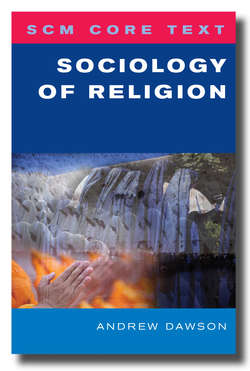Читать книгу SCM Core Text Sociology of Religion - Andrew Dawson - Страница 47
На сайте Литреса книга снята с продажи.
Historical materialism
ОглавлениеOnce having broken with the German idealists, Marx believed that it was not ideas that drove history forward but rather the relationship (‘dialectic’) between humankind and its material environment. Driven by the instinct to survive and flourish, humankind reproduces itself – physically, socially, intellectually etc. – by appropriating whatever means its material environment provides. Marx calls this mode of appropriation the ‘means of production’. Down the ages, various ‘means of production’ have been employed (e.g. nomadic herding, hunter-gathering, sedentary agriculturalism), the most recent of which is the industrial-capitalism of modern society. Such is the importance attributed by Marx to the means of production that he held all other forms of societal organization (such as macro-structural, mid-range and micro-social) to originate from it. Marx defined these derivative forms of social organization as ‘relations of production’. The means of production of any given society is thereby understood as a foundational base upon which the social superstructure rests and from which it gets its particular historical form. For Marx, then, all social change is driven by transformations in the underlying means of production – the most notable example of which is the agricultural base of medieval feudalism giving way to the industrial base of modern capitalism. The sharp contrasts between medieval rural society and modern urban society are ultimately grounded in the sharp contrasts between their respective means of production.
